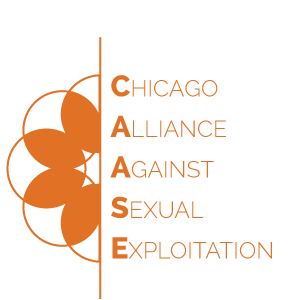LEGAL HELP FOR NAME AND GENDER MARKER CHANGES
Name and Gender Marker Changes for Trans, Nonbinary, and Gender Nonconforming Survivors
The rates of sexual violence experienced by trans people are disproportionately high. Statistics show that around 1 in 2 trans people will experience sexual violence at some point in their lives. Many trans and gender nonconforming (TGNC) individuals don’t have personal identification that accurately reflects their real name and gender identity. This also creates many difficulties in navigating the court system, getting public benefits, finding a job and more. If you are a TGNC survivor in Cook County seeking a name and/or gender marker change, the attorneys at CAASE can help!
CAASE provides free legal services to TGNC survivors of sexual harm who need their names and gender markers changed on their personal documents. If you have a criminal record, you may still be eligible: Illinois law now allows TGNC people with felony convictions to petition for name and gender marker changes too due to their status as a trafficking survivors, marriage, gender-related identity, or religious beliefs.
Illinois law requires that individuals who want to change their names get a court order. CAASE can help you get this court order, which you can then use to update your legal name and gender marker on identifying documents and personal accounts. The process for getting a name and gender marker change includes:
- Submitting a petition to the court
- Publishing a notice of the petition in a newspaper for 3 consecutive weeks, starting at least 6 weeks before the hearing. This requirement can be waived by the judge under certain circumstances. The requirement is often met by publication in the classified section of a small periodical like the Chicago Daily Law Bulletin.
- For survivors who are under 18, a judge can allow a name change if it is in the minor’s best interest, but the petition must be filed by a custodial parent or guardian. The court must consider the wishes of the minor’s parents and anyone who has physical custody, but the court can grant the name change even if not all parents or guardians agree. Parents must receive notice of a petition for a name change, even if they do not have physical custody. Additionally, the judge may waive the requirement to publish the notice of the petition in a newspaper for those under 18.
CAASE cannot accept cases involving criminal defense, divorce, custody, property in common or other family court issues, immigration, or cases that involve survivors who do not want to participate in a legal process, even if they are minors. If CAASE can’t assist you, we will try to connect you to another attorney and support resources.

